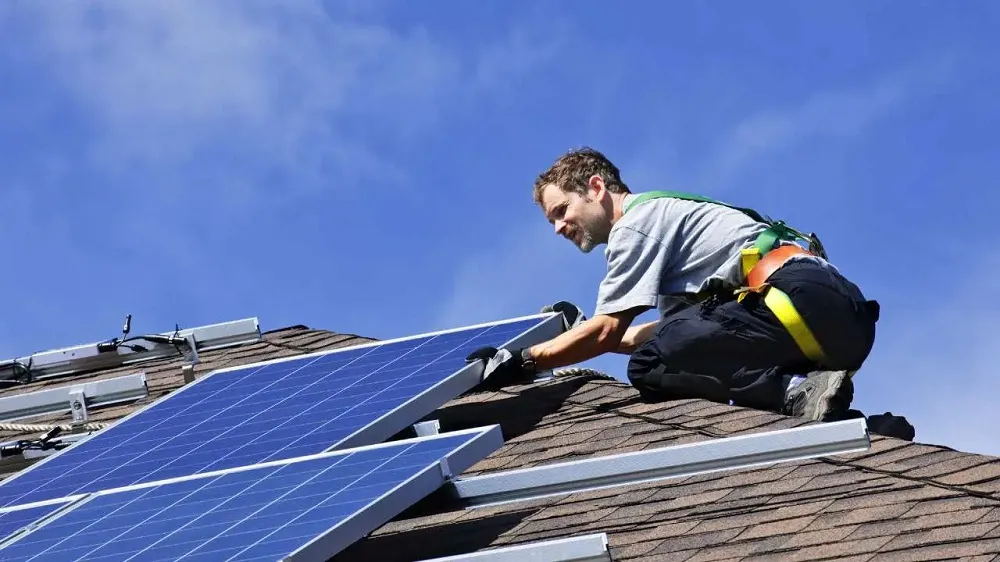Solar power has gained immense popularity as a clean and sustainable energy source for both residential and commercial properties. The benefits of harnessing solar energy, including reduced electricity bills and environmental sustainability, are driving more homeowners and businesses to explore solar panel installations. However, it’s essential to recognize that residential and commercial solar installations differ significantly due to distinct requirements, objectives, and considerations. In this article, we will explore the key differences between residential and commercial solar panel installations, helping you understand the unique aspects of each.
Scale and Size
Residential: Residential solar installations are typically smaller in scale compared to commercial installations. They are designed to meet the energy needs of individual households. The size of a residential solar panel system depends on factors like the household’s electricity consumption, available roof space, and budget.
Commercial: Commercial solar installations are larger and more scalable. They are intended to generate electricity for businesses, institutions, or large facilities. Commercial systems can vary widely in size, from small arrays for local businesses to expansive installations for industrial complexes or warehouses.
Energy Production Goals
Residential: Residential solar installations primarily focus on reducing homeowners’ electricity bills and decreasing their reliance on grid power. The goal is often to generate enough electricity to cover the household’s energy consumption and potentially earn credits through net metering.
Commercial: Commercial installations serve a dual purpose. While cost savings on electricity bills are a significant incentive, many commercial installations are also driven by environmental sustainability and corporate responsibility. Businesses may aim to reduce their carbon footprint and demonstrate their commitment to clean energy.
Complexity of Installation
Residential: Residential solar installations are generally less complex than their commercial counterparts. The rooftops of individual homes provide a straightforward and easily accessible location for solar panels. The installation process is often relatively simple and typically requires fewer permits and approvals.
Commercial: Commercial installations can be more complex due to their size and unique architectural considerations. The location of solar panels, equipment placement, and structural compatibility must be carefully planned. Commercial installations may also involve more extensive permitting and regulatory compliance.
System Design and Configuration
Residential: Residential solar systems are typically grid-tied, meaning they remain connected to the local utility grid. These systems often do not include battery storage, as the grid serves as an efficient energy storage solution.
Commercial: Commercial installations may vary in configuration. Some businesses opt for grid-tied systems, while others incorporate energy storage solutions like batteries to ensure a consistent power supply and reduce demand charges during peak hours.
Roof Space and Location
Residential: Residential solar installations primarily rely on the available roof space. The orientation and tilt of the roof, shading from nearby structures or trees, and the condition of the roof are essential factors to consider when designing a residential solar system.
Commercial: Commercial properties typically offer more roof space, and the installation may involve larger arrays spread across multiple roofs or ground-mounted systems on the property. Location is crucial for optimizing energy production.
Financing and Incentives
Residential: Homeowners have access to various incentives, such as federal tax credits, state rebates, and net metering programs, which can significantly reduce the cost of residential solar installations. Financing options, such as solar loans and lease agreements, are widely available.
Commercial: Commercial properties can also take advantage of federal tax credits and state incentives. Additionally, some commercial properties may benefit from special financing options, power purchase agreements (PPAs), or solar leases tailored to their specific needs.
Permitting and Regulations
Residential: Permitting and regulations for residential solar installations are typically more streamlined and standardized. Homeowners often work with local authorities to obtain the necessary permits, which can vary by location.
Commercial: Commercial installations may involve more extensive permitting processes, as they are subject to additional regulations and inspections. Zoning requirements, environmental impact assessments, and utility interconnection agreements may be necessary.
Maintenance and Monitoring
Residential: Maintenance of residential solar systems is generally straightforward and can be performed by homeowners or solar professionals. Monitoring software allows homeowners to track energy production and system performance.
Commercial: Commercial installations may require more rigorous maintenance due to their size and complexity. Regular inspections, cleaning, and system monitoring are essential to ensure optimal performance and reliability.
Return on Investment (ROI) Expectations
Residential: Homeowners typically expect a shorter ROI period for residential solar installations, often ranging from 5 to 10 years. The primary goal is to reduce electricity bills and achieve savings over time.
Commercial: Commercial properties may have longer ROI expectations, depending on the size of the installation and the organization’s energy goals. While cost savings are essential, the environmental and corporate social responsibility aspects may play a more significant role in the decision-making process.
Conclusion
Residential and commercial solar panel installations each have their unique characteristics, objectives, and considerations. Understanding these key differences is essential when planning and executing solar projects for homes or businesses. Whether you are a homeowner looking to reduce your energy bills or a business owner aiming to make a positive environmental impact, solar technology offers viable and sustainable solutions for both residential and commercial applications. As technology continues to advance and costs decrease, solar energy will play an increasingly vital role in the transition to a cleaner and more sustainable energy future for all.









